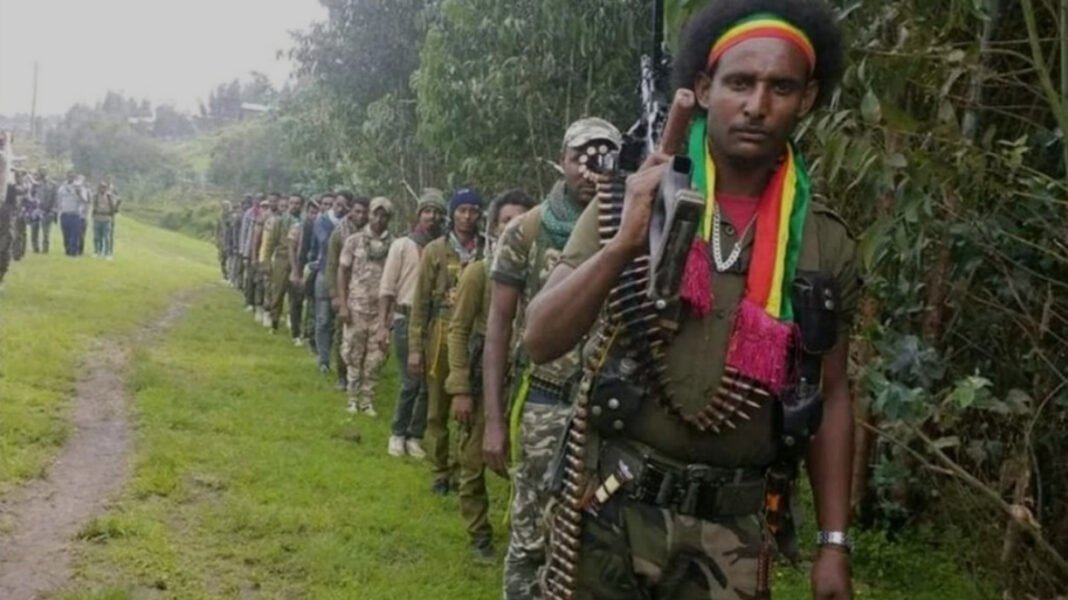ADDIS ABABA , (HAN) – The Amhara Fano militia says it has captured new territories amid intensifying battles with federal forces, signaling a new escalation in Ethiopia’s internal conflict. The militia, which emerged as a powerful regional force during the Tigray war, announced through local channels that its fighters have taken control of several strategic areas in the Amhara region after weeks of fierce clashes.
Residents in parts of northern Amhara reported heavy fighting near towns such as Lalibela, Kobo, and Debre Elias, where federal troops have launched counteroffensives to regain control. Unverified social media footage appears to show Fano fighters patrolling captured positions, though communication blackouts and restricted access for journalists make independent verification difficult.
Prime Minister Abiy Ahmed’s government is facing increasing political and military pressure as multiple fronts open across Ethiopia. Besides the ongoing Amhara conflict, security tensions remain high in Oromia, Benishangul-Gumuz, and parts of the Somali region, straining the federal government’s ability to maintain order.
Diplomatic observers warn that the resurgence of armed confrontation in Amhara could destabilize Ethiopia’s fragile post-Tigray peace process. The federal government, while calling Fano an “illegal armed group,” has promised to restore security and urged local communities to cooperate with the military.
Humanitarian organizations, meanwhile, are raising alarm over reports of mass displacement, civilian casualties, and limited aid access in conflict-affected zones. The United Nations has urged restraint from all sides and called for dialogue to prevent further escalation.
Analysts note that the latest violence underscores Ethiopia’s deepening ethnic and political divisions, with many citizens expressing frustration over the government’s handling of regional grievances. As the conflict widens, concerns are growing that Ethiopia could once again slide into prolonged instability, threatening peace and security across the Horn of Africa.





